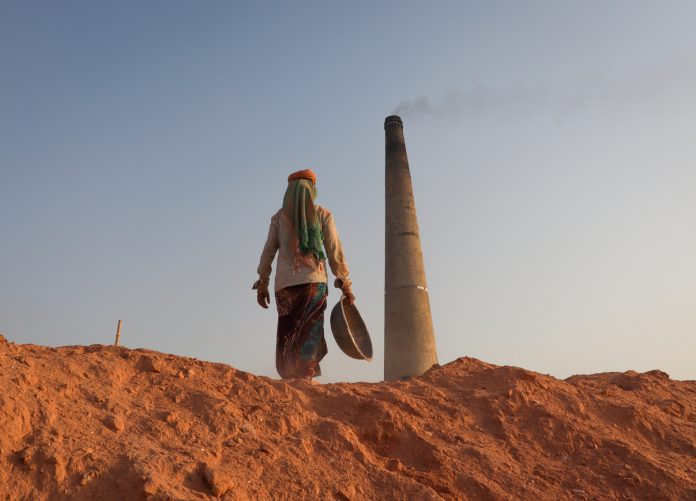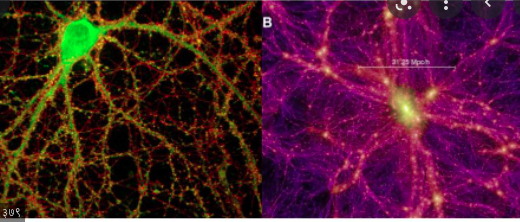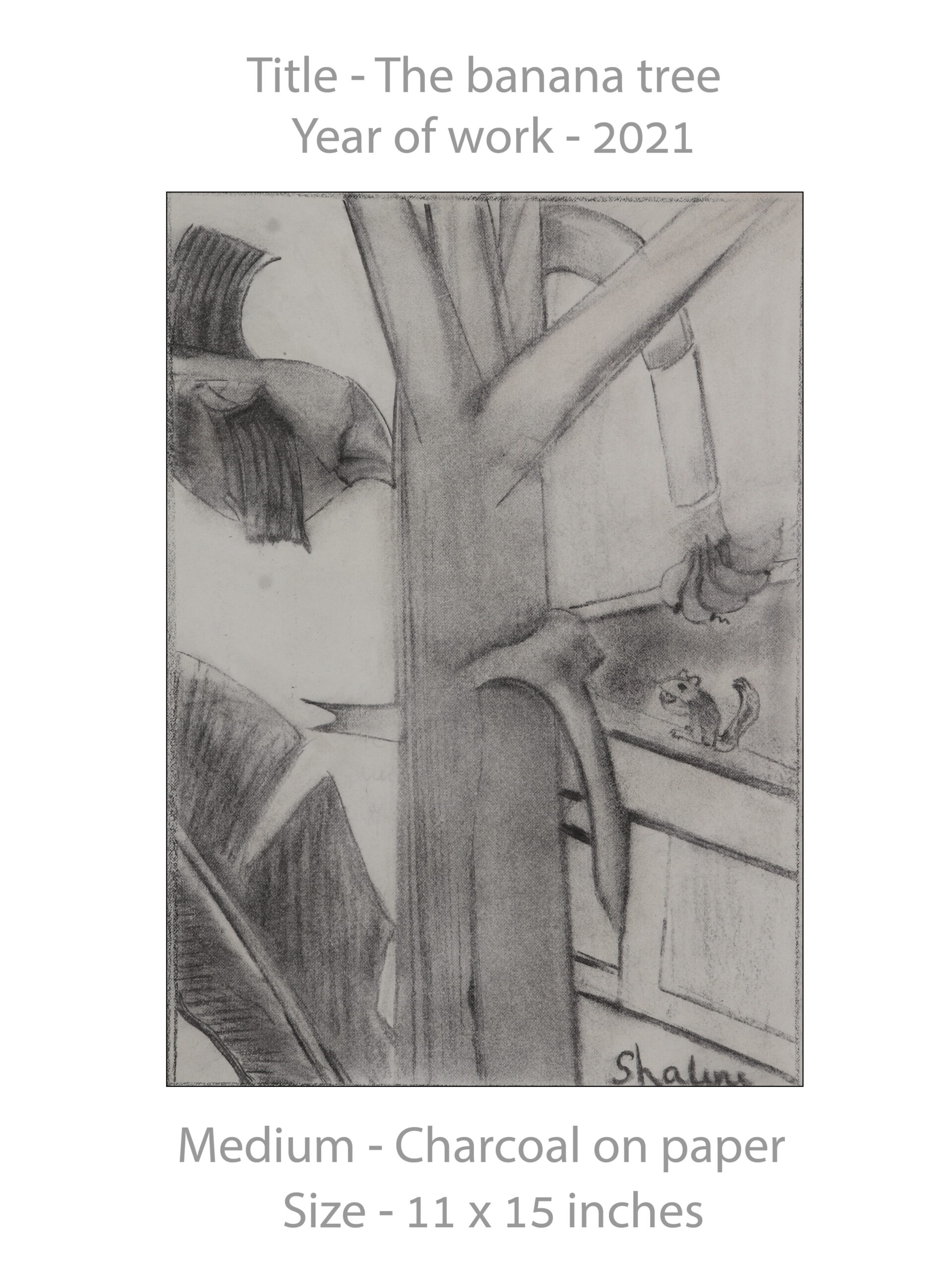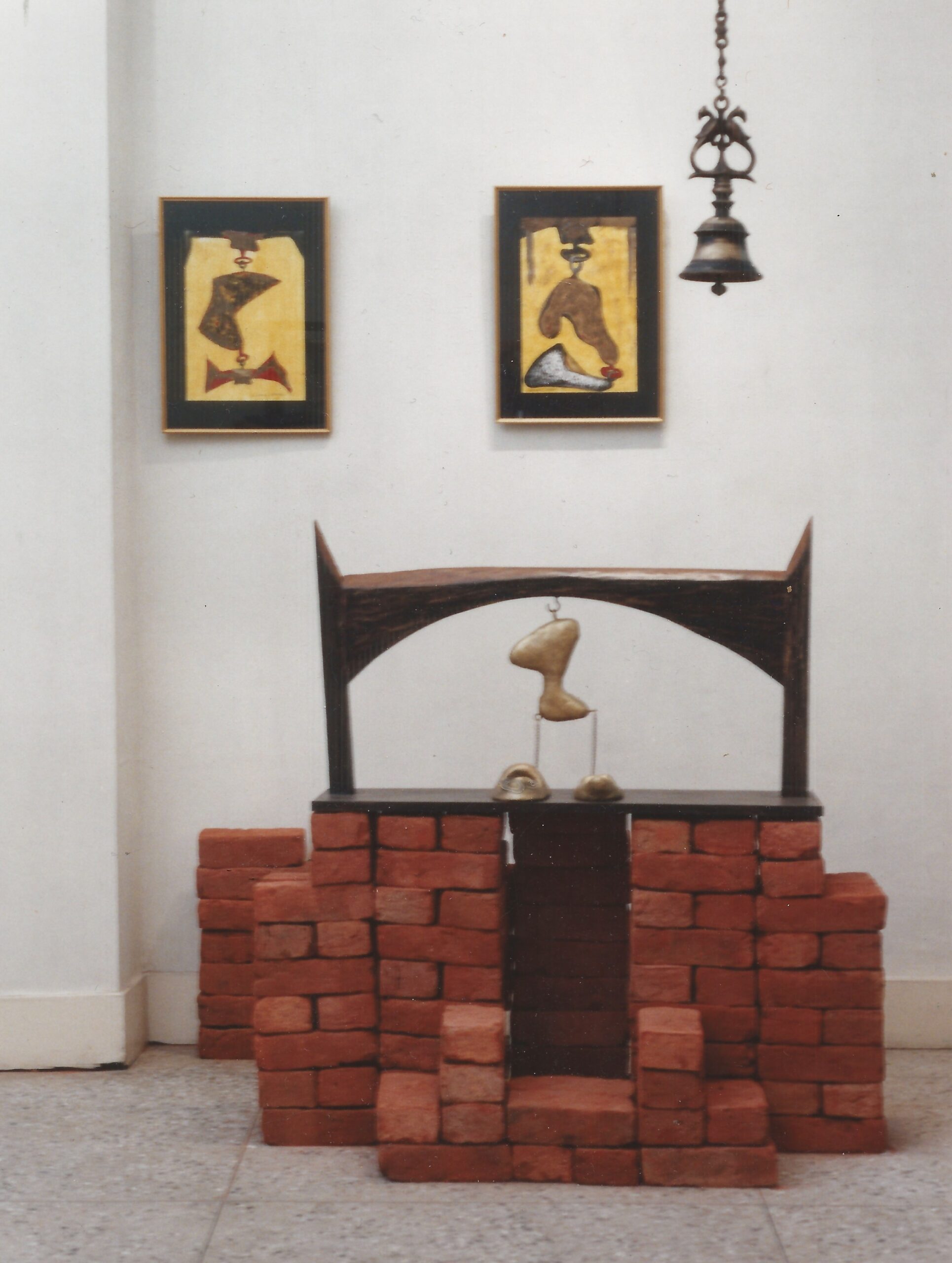In The City Alone … and other poems / Rachna Joshi

In the City-Alone
The lone Tesu tree at the edge of the road,
hardy survivor of many city beautification drives
throws the morning shadow over the mazdoor
woman
breaking stones.
Half-erased signboards written in Hindi
flank her.
Yahan Malba Phekna Mana Hai
‘Do not throw rubble on the road.’
Undeterred, she keeps pounding rocks
breaking them into pebble-size,
the sidewalk is cluttered.
There is a bulldozer parked on one side
and also a scrawny boy with a limp hobbling by.
Girl on the Bulldozer
Oh! Thin girl on the bulldozer,
your faded sari, shriveled plait,
your bold attempt to stand erect
have stilled me here.
Is the beefy driver-lover
exploiter, employer?
Have your desires, loves and life
Been pounded into
a sick and suffering body.
Ensconced in my sunlit terrace
like the maker of a documentary film
I see you still.
Elvish , wispy, forlorn
spirit: I gather you,
in my thoughts.
That Boy with a limp
He had shorn off
his hair after 1984
yet the limping boy
still feels cornered
by innocent stares.
Pulled apart by two sets of conditionings
split by the riots
in Byronic despair
he thrusts his fascinating profile forward
his trembling limb held firmly in check.
He is iconoclastic and outrageous
his voice fierce, eyes black
he seeks clarity and meaning
identity and success
in an increasingly incomprehensible world.
Images of carnage haunt him
scared, wary, suspicious,
he will rather starve than beg.
(From Travel Tapestry, Rachna Joshi, 2013, Yatra Books, New Delhi)
Rue de Rivoli, Paris
A cobbled street merges
into the paved road.
I see the old Paris
old buildings, worn and used entrances,
people dressed in quaint clothes.
I am drawn back to India.
India as a dark, vibrating womb
which maintains at its core
a primal rhythm.
A fragrance arising
out of old manuscripts, statues
rock carvings, leaves, bricks, dust.
Buried in nooks and crannies,
in forgotten places.
(From Monsoon and Other Poems, Rachna Joshi, 2020, Tethys, New Delhi)
Sivoham
In the bus, people move among goats and sacks of grain.
Women in flaring skirts
seamen on leave
sick children.
Across the ridge, the sun rises
Nanda Devi, Trishul, Pancha Chuli,
they appear in different colours.
I walk through the old market
fascinated by cowbells. Himalayan cedars
and pines cover the slopes around.
Dew soaks through the foliage
and the cold vapours settle everywhere,
branches and leaves hang in a myopic mist
green, white and light blend.
In the wooden house, the harmonium is playing.
someone is singing ‘Sivoham, Sivoham.’
His brow is covered with sweat
and there is a sandal-silver dot in the middle of it.
(From Configurations, Rachna Joshi, 1993, Rupa & Co., New Delhi)

Worli Sea Face
Rain flies across the pavements,
and smoke rises from the road,
wet, sticky odours linger…
one streetlight flickers,
one mangy pie dog barks,
but…the onslaught continues.
The churning sea comes inwards,
With deafening crashes, tumultuous breakers,
foam, froth and water boring every shattered rock.
Haji Ali, bathed in some celestial light
stands alone…distant…a tower of silence.
Smoke rises from the Bhel Puri vendor’s stall,
it hurts the eye.
Something drifts in the air,
something…reflected in the restlessness of the sea,
something felt as the rain drums the tarred road,
something felt as Sunita and Sujata discuss the language of the waves.
‘The sea dances,’ they say.
‘It joins hands to dance among the stratified remains of some land,
it breathes, it heaves, it wants to say something.’
I stare up at those tall, towering giants,
those muted high rises, the forlorn penthouses,
they look back, with conscious irony.
Then the sea decides to speak,
the rain beats faster, the sea leaps up,
the fast, co-ordinated dance breaks,
the waves lose step, the water screams,
screams out, too clear…
and we walk back,
unable to understand the fathomless, changing, unpredictable dance.
The sea has warned us,
the sea has warned us.
(From Crossing the Vaitarani, Rachna Joshi, 2008, Writer’s Workshop, Calcutta)










